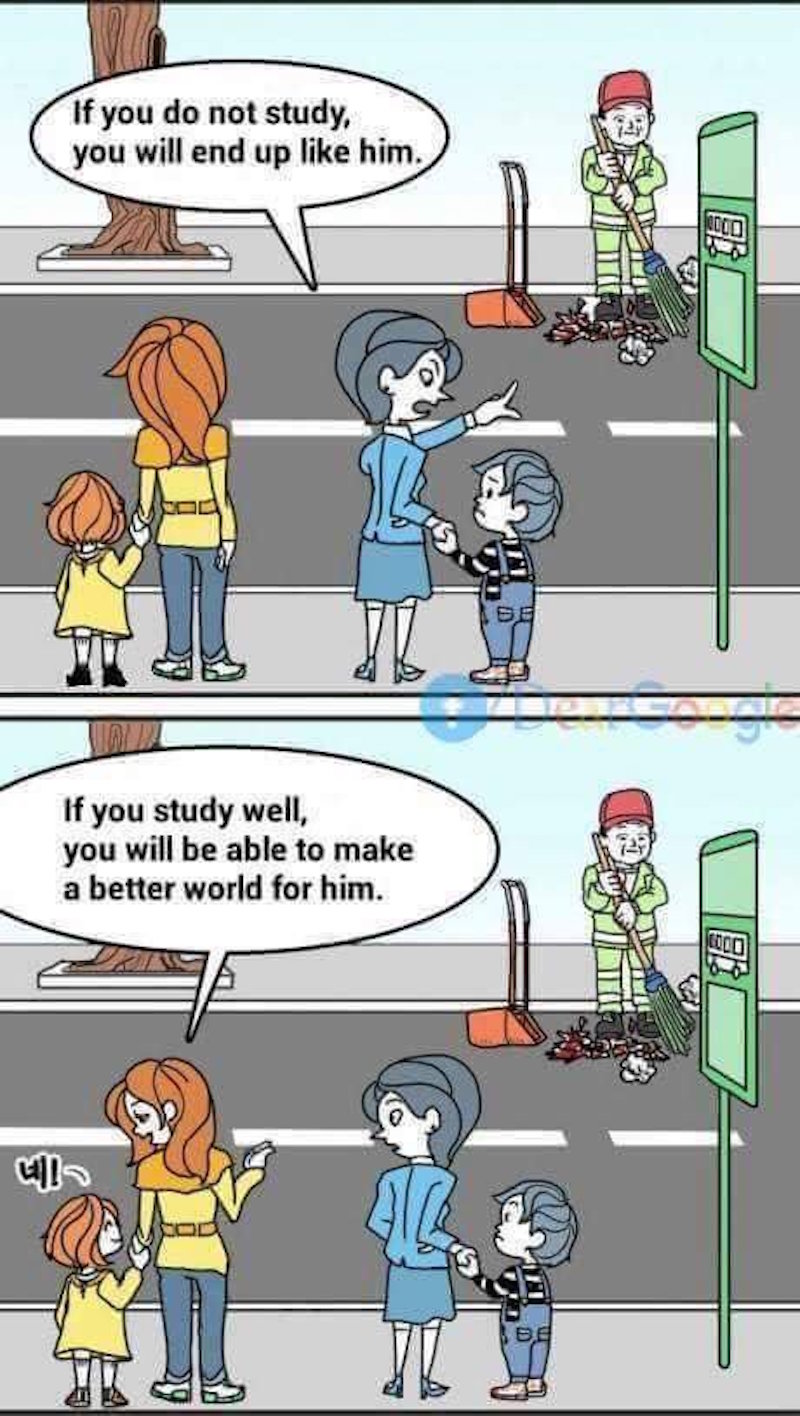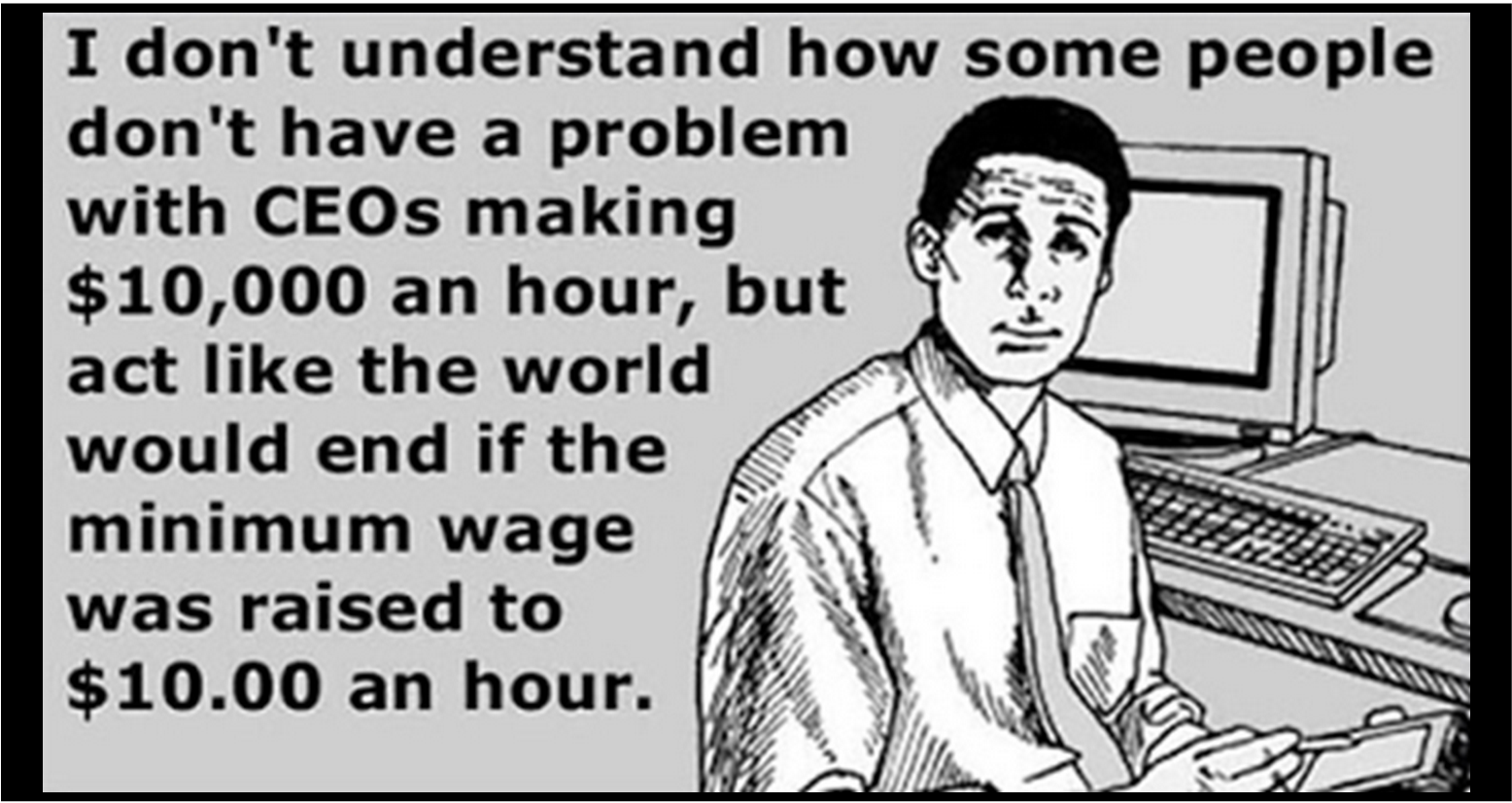The Wrong Way To View Low Wage Workers
By:
A comic circulating on social media highlights two divergent viewpoints people have towards low-wage workers — one which categorically shuns them, and the other which encourages compassion and fighting to improve the lives of low-wage earners.
 Next Shark/Unknown - nextshark.com
Next Shark/Unknown - nextshark.com
The comic, which was created by an unknown artist, depicts two mothers and their young children. A man sweeping up trash stands across the street. One mother uses the man and his presumably low-paying job as motivation to study hard to avoid winding up pushing a broom for a living.
The other mother points to the man and encourages her child to study hard in order to work to create better working conditions for the broom-pushing man.
The disparate lessons illustrate broader cultural assumptions about low-wage work — namely that it is relegated to the lazy, uneducated, and unmotivated classes, and that workers are stuck in low-paying jobs largely because of those traits. The mother who tells her child to study hard in order to create change for low-wage workers doesn't dispel those notions, but she does imply that there is more to the scene than meets the eye.

As ATTN: has noted, the myth that low-wage workers are uneducated is often false. Many workers are in low-paying jobs while they work towards a degree or certificate, but are often trapped in a feedback loop of low-pay, which makes it difficult to afford education programs or vocational training.
Another common argument against a higher minimum wage is that the work — in this case, picking up trash — is not worth more pay. The problem this argument misses is that all American workers — not just low-wage earners — are experiencing decades-long wage stagnation.
As the mother in the second window notes, the problems faced by low-wage workers are not always isolated to those who hold the positions — and they should not necessarily be treated as such.
